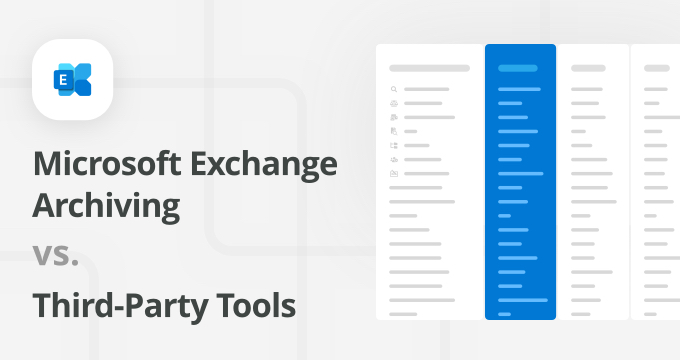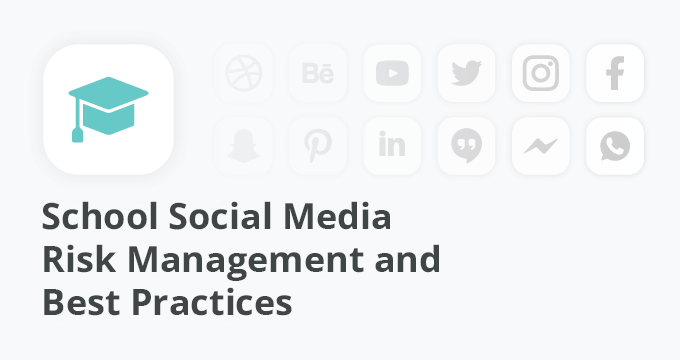Marko: Hi, my name is Marko and I am the CEO of Jatheon Technologies.
Jeff: My name is Jeff Marlow and I am the Vice President of Business Development at Jatheon Technologies.
How would you describe Jatheon in one sentence?
Marko: Jatheon is an information archiving company that specializes in archiving both email and unstructured data like social media, voice and text and instant messaging and it’s been in business for about 15 years and is a leader in search and ediscovery.
Who is archiving today and who isn’t but should be?
Jeff: Well, in our world today, we generally focus on four markets that are regulated and those are the ones that have launched this industry. Over time, those markets could expand, there could be additional markets as we go forward but right now, we are very niche. We’re very niche so there is a limited market place in terms of what’s regulated but the good news is that it’s required. Our technology is required in all those markets so the demand is always there.
What are some of the main industry trends?
Marko: Archiving started back in 2004 after the fall of Enron with the introduction of number of litigations, laws and this really created the industry. The trends right now is even more regulation, even in countries other than the US, in Europe. In California there is even more regulation nowadays. So, those laws tend to create the need for archiving as one of the things that companies need to do to fulfill some of the requirements. Social media archiving is a recent trend that started in the financial industry to begin with, and this is spreading across all of the education and various other verticals. Social media is a much more difficult problem than email archiving or voicemail archiving, and it requires very specific technology to address it that is just emerging. We are at the very beginning of the social media archiving trends and this will just develop over the next few years.
Jeff: I would add to that, along with the lines of what Marko just said – some of the trends have branched out from where we started. For example, in recent times, there is legislation that was passed in Europe – GDPR – that is requiring secure personal data among companies that deal with personal, consumer data and that type of legislation has translated to the types of legislation that we’re now seeing in the US. So, we feel that there’s an opportunity there is terms of expanding our own product line, our own technology, to accommodate that type of legislation that’s forthcoming.
What would you say sets your products apart?
Jeff: I would say we have developed several generations of product that have given us, I think, the leading edge in terms of our core product, which has been email archiving all along. We have evolved that into other forms of information archiving, like social media, as Marco mentioned, as well as text archiving. Our product is rock solid in terms of the technology. The company has been very technologically focused over the years, since its inception. One other thing that sets us apart from the competition is our search function. When you look at this type of technology, ediscovery is probably the largest use case. For e-discovery to work really well you need to have a very, very comprehensive, very advanced search function and that’s exactly what we have. We believe it’s the most advanced, the most comprehensive of any search function in the industry. So, I would say that, perhaps more than anything else, is what sets email function apart from anything else.
What are the biggest challenges you face in this industry?
Marko: The biggest challenge is the entry of some of the very large players into the industry and that commoditized the market. With the introduction of Microsoft Office 365 and Google Vault, this industry is basically compressing margin to the point where archiving tends to be a check box in a long list of compliance that any company needs to have. This tends to present various issues for companies that have significantly better search or storage than the products included in Office or in Google. That translates into a requirement to educate the market a lot more and really show that some of the ediscoveries cost a lot more to fulfill with some of these bundled products.
Jeff: I would add to that too is that whenever you have the word “free” associated with any product or service, there’s something that’s not there that value-added providers do have. Otherwise, we wouldn’t be in business, nor would other companies like us be in business. Most of the companies that are in the markets in which we serve know what Google Vault is. They know what some of the others out there that offer free services, free products entail. There’s a reason why they come to us. There is a value added with what we have to offer versus what the freebies don’t necessarily offer.
What advice would you give to organizations looking for an archiving solution?
Marko: The first thing is that you might have a product bundled at a lower price and that’s not necessarily the first thing that needs to be considered. One of the first things that needs to be considered is what are the requirements of your archiving and ediscovery for legal and HR purposes. And those requirements need to be carefully considered and matched against the feature set of various different archiving vendors so that you have maximum efficiency when it comes to ediscovery, which basically helps prevent paying all kinds of different fines for various different timeline misses. It also assures that you can provide the full data sets that you need to provide for various different ediscoveries. So, the feature set needs to match the requirements and then that whole solution needs to be considered as a whole.
Based on your experience so far, do companies retain what is in the archive forever? What are some of the practices?
Jeff: Well, the retention period for various companies is pretty much a regulated sort of thing. FINRA, let’s say, for financial services will have a requirement for financial services companies that may be different from healthcare under HIPAA or some of the other regulatory bodies out there. Most organizations don’t necessarily have to retain data forever. Some of them do. But it’s all based upon what industry they are operating under and what the regulatory bodies are dictating.
What do you think is the future of archiving?
Marko: I think the future of archiving is vast. I think that currently we have various different documents archived and more and more things or information is considered a document. Therefore, we started off with email, which is a classic business document and then we went over and crossed into the voicemail and phone as being labelled as a business document. How we have social media, so all your tweets and Facebook posts are also business documents and I think that trend will continue. So, anything where you contribute to any sort of information source, anywhere where you share data will be considered document in the future and will therefore need to be retained for various different legal purposes. And that basically expands our field into much more than just email and I think archiving is one of the keys for legal support in the future.
Jeff: First of all, research points to the fact that this industry is going to continue to expand over the next decade. Growth will be slow but is going to be steady over the next decade. So, that’s one point. Another would be that, as I mentioned earlier, there will be these other avenues that will be driving archiving needs and it’s regulatory related, as I mentioned GDPR or some of the other US types of legislation that are forthcoming, that are requiring archiving of personal data, consumer data correctly.
These are things that are not necessarily regulated in North America right now, but will be in the near future. So it opens up another avenue of opportunity for us and, quite frankly, it’s not just in the vertical markets in which we operate. It’s going to be a little more expansive than that because that type of legislation, like GDPR and some of the others that I am referring to, don’t necessarily address just those four markets that we operate in. It addresses a much wider swathe of businesses. So, the opportunity, I think, is going to be a little different, but it’s going to be bigger than what we’re dealing with today.
How is Jatheon adapting to the trends?
Marko: We are building Jatheon to be a modular solution so that you can get social media archiving as a standalone product or email archiving as a standalone product, or you can get a bundle across all the different information that you might need to archive. That’s really how we are looking at the market. You might find the best solution for your requirements and your needs and we hope that Jatheon has a certain part of the archiving chain that is served best by our products.
Jeff: Yes, I would agree with that, and add to it, that if you look at our evolution, we started out as an email archiving only company. Since then, we have added on social media archiving and text archiving, as I already mentioned. But there are other potential opportunities that are forthcoming that we might want to get into. We’re always looking at this in the market. We are looking at opportunities with other companies, or even building it ourselves. In more recent times, we are venturing into building a standalone social media archiving product, which today we don’t have. It’s offered as a feature or a subset of our existing email program. So, these different types of archiving will add to our value, it will broaden our reach and ultimately make us bigger and better as we go forward.
For more information about our email archiving solutions, visit the Jatheon Cloud product page.










